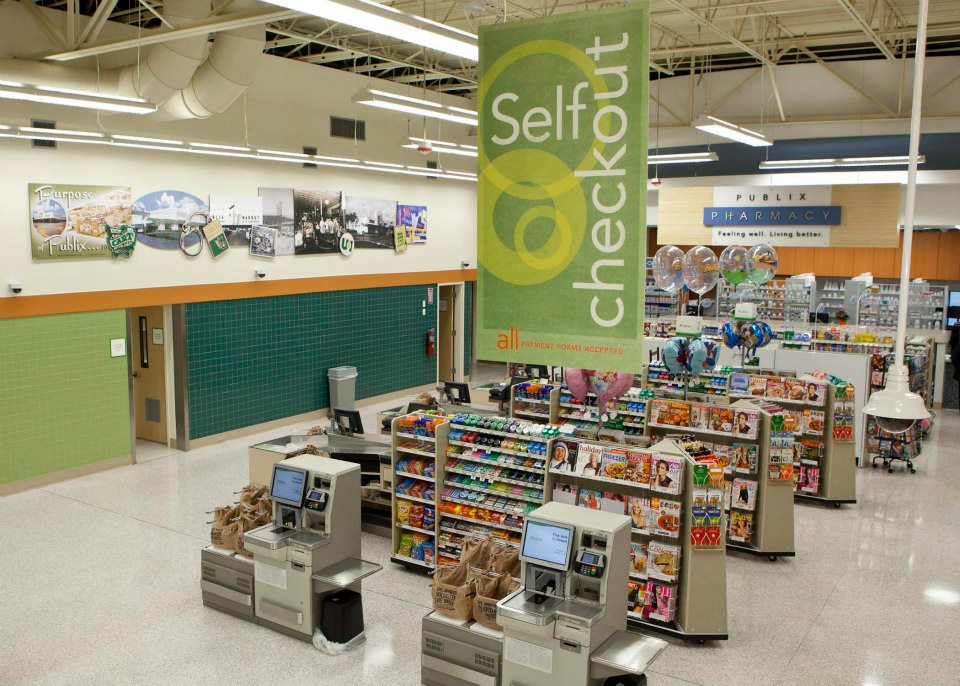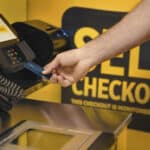
Target and a handful of other retailers made headlines recently when they decided to limit self-checkouts to “10 items or fewer.” Now, in one state, that limit may become the law.
The California State Senate is considering a bill that would impose a number of restrictions on retail self-checkouts. In addition to limiting self-checkout purchases to no more than ten items, the proposal would require at least one open, staffed checkout lane for every self-checkout terminal in operation. And it would ensure that employees would not be required to monitor any more than two self-checkout stations at a time.
So why would this be a matter for legislation? The bill’s sponsor says it’s about protecting employees, from threats to their jobs and to their safety.
“We want to ensure that the checkout stalls are considered a workplace hazard,” California State Senator Lola Smallwood-Cuevas told a committee hearing last week. Not only does automation potentially imperil retail employees’ jobs, she said, but “as self-checkout has become more commonplace, lone workers have become easy targets for theft and violence.”
Testifying in support of Smallwood-Cuevas’s bill, union member and retail employee Megan Stanczak told the Labor, Public Employment and Retirement committee that “the push to expand self-checkout from four up to sometimes ten machines has created chronic understaffing in grocery stores.” Fewer employees, she went on, “especially at the front of the store, leaves us vulnerable to becoming targets of retail theft.” In addition, she said, “issues with self-checkout machines and understaffing increase customer irritation and put myself and my coworkers at risk of verbal and physical assault by frustrated customers.”
Glenn Backes of the Prosecutors Alliance of California called the bill’s provisions “a crime prevention strategy that also has the benefit of creating jobs. And we know that employment itself is a good antipoverty and anti-crime measure.”
Positioning self-checkout regulation as a matter associated with employee safety is a novel approach to the divisive issue. There has always been a certain segment of the shopping population who dislike having to scan their own items. This has prompted legislative proposals to reward shoppers who choose – or are given no choice – to do “a cashier’s job.” Retail employees and unions also have long raised concerns that the machines could eliminate cashier jobs. This has prompted proposals to limit or regulate the number of self-checkout machines a store is allowed to have.
But there are separate, longstanding concerns that theft is easier and more prevalent at self-checkouts. That’s generally been seen as retailers’ problem to solve. When Target limited self-checkouts to ten items or fewer, it made no mention of theft, saying the change was meant to “reduce wait times” and improve the “ease and convenience” of checkout. At around the same time, Dollar General decided to eliminate self-checkout from thousands of its stores, admitting that theft contributed to its decision. But it made no mention of employee safety.
Representatives of retail groups who testified in opposition to the California bill expressed skepticism it would have the desired effects. “These measures will only serve to frustrate consumers, with no evidence they will reduce theft or provide additional protection to employees,” California Retailers Association representative Margaret Gladstein said. Calling the measure “overreach,” she argued “there’s no rationale for restricting the number of items that can be sold using self-checkout.” Besides, she pointed out, “a number of retailers are already altering their self-checkout practice. The marketplace is addressing this issue.”
The measures “aren’t going to have an impact on retail theft,” California Grocers Association representative Louie Brown agreed, “and more than anything (will) just create inconvenience for our customers.”
Smallwood-Cuevas’s colleagues were on her side, though, voting to advance the bill to the Appropriations Committee for further discussion. “This is our opportunity,” Stanczak the retail worker said, “to learn from the failed social experiment of self-checkout machines and ensure greater accountability for our employers when it comes to automating our jobs.”
Self-checkouts have been around for decades, and the love-them-or-hate-them argument has been going on just as long. By introducing a new twist to an old debate, legislators hope their proposal just might be the solution that everyone can agree on – though it may simply show that this issue is destined to remain as divisive as ever.
Image source: Publix










